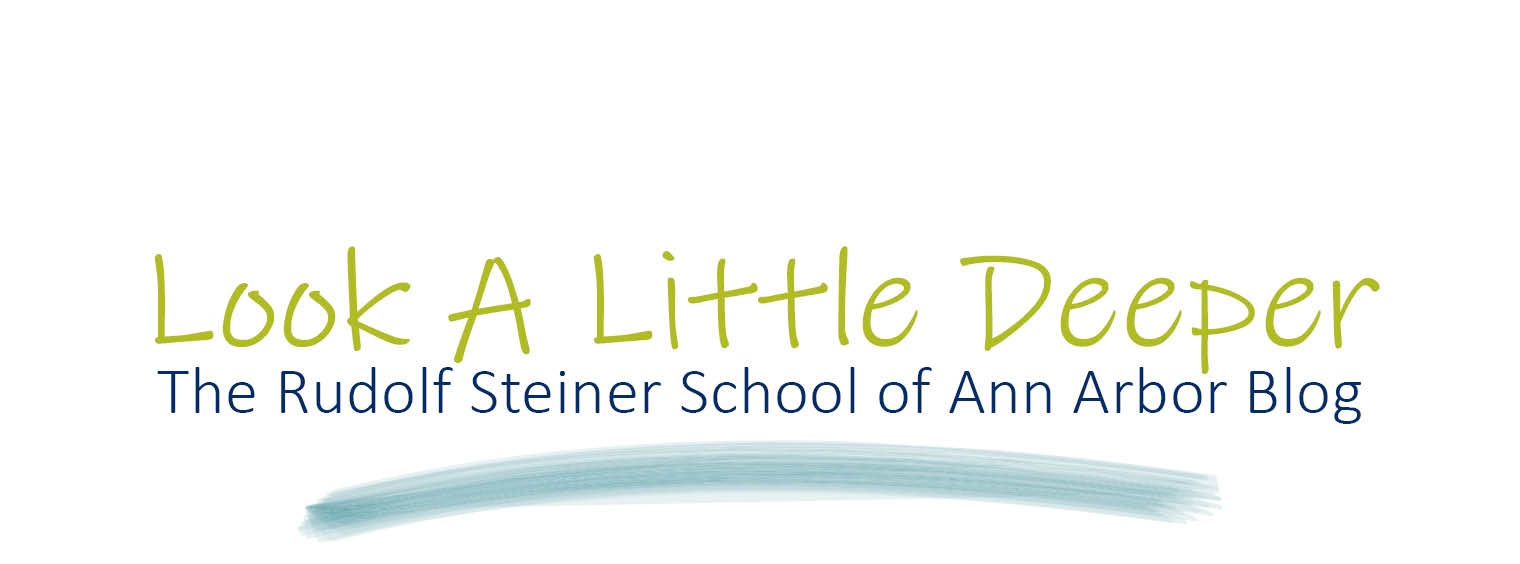

Adaptability Quotient: Educating for an Uncertain Future
With increasingly rapid changes in the nature of work, employers are interested not just in intelligence and social skills, but in an employee’s adaptability quotient–their ability to adjust to new challenges with flexibility, curiosity, courage, resilience, and problem-solving skills. In Waldorf education, we deepen rigorous academics by integrating art, outdoor education, music, theater, practical work, movement and hands-on learning. The depth and breadth of the Waldorf curriculum challenges students and develops crucial capacities that will help them adapt and thrive throughout their lives.
.jpg/Surpassing_Stem(1)__600x450.jpg)
This article was originally published Seb Murray on BBC.com
As workplaces change, is it enough to be smart? Enter AQ, the capacity to adapt that may well determine your future career success.
Once, if you wanted to assess how well someone might do climbing the career ladder, you might have considered asking them to take an IQ test. For years, it was thought that the intelligence quotient (IQ) test – which measures memory, analytical thinking and mathematical ability – was one of the best ways to predict our future job prospects.
 More recently, there has been increased attention on emotional intelligence (EQ), broadly characterized as a set of interpersonal, self-regulation and communication skills. EQ is now widely seen as a tool kit that plays an important role in helping us succeed in multiple aspects of life. Both IQ and EQ are considered important to our career success. But today, as technology redefines how we work, the skills we need to thrive in the job market are evolving too. Enter adaptability quotient, or AQ, a subjective set of qualities loosely defined as the ability to pivot and flourish in an environment of fast and frequent change.
More recently, there has been increased attention on emotional intelligence (EQ), broadly characterized as a set of interpersonal, self-regulation and communication skills. EQ is now widely seen as a tool kit that plays an important role in helping us succeed in multiple aspects of life. Both IQ and EQ are considered important to our career success. But today, as technology redefines how we work, the skills we need to thrive in the job market are evolving too. Enter adaptability quotient, or AQ, a subjective set of qualities loosely defined as the ability to pivot and flourish in an environment of fast and frequent change.
“IQ is the minimum you need to get a job, but AQ is how you will be successful over time,” says Natalie Fratto, a New York-based vice-president at Goldman Sachs who became interested in AQ when she was investing in tech start-ups. She has subsequently presented a popular TED talk on the subject. Fratto says AQ is not just the capacity to absorb new information, but the ability to work out what is relevant, to unlearn obsolete knowledge, overcome challenges, and to make a conscious effort to change. AQ involves flexibility, curiosity, courage, resilience and problem-solving skills too.
Amy Edmondson, a professor of leadership and management at Harvard Business School, says it is the breakneck speed of workplace change that will make AQ more valuable than IQ. Technology has vastly changed how many jobs are done, and the disruption will continue – over the next three years, 120 million people in the world’s 12 largest economies may need to be reskilled because of automation, according to a 2019 IBM study.
Any roles that involve spotting patterns in data – lawyers reviewing legal documents or doctors making a patient diagnosis, for example – are easy to automate, says Dave Coplin, CEO of The Envisioners, a UK-based technology consultancy. This is because an algorithm can do these tasks faster and more accurately than a human, he says. To avoid obsolescence, workers doing these jobs need to develop new skills like creativity to solve new problems, empathy to communicate better and accountability, using human intuition to supplement insight from machines. “If an algo can do 30% of the tasks that I used to do, what can I do with that spare capacity? The winners are those who choose to do things that algos can’t.”
 Edmondson says every profession will require adaptability and flexibility, from banking to the arts. Say you are an accountant. Your IQ gets you through the examinations to become qualified, then your EQ helps you connect with an interviewer, land a job and develop relationships with clients and colleagues. Then, when systems change or aspects of work are automated, you need AQ to accommodate this innovation and adapt to new ways of performing your role.
Edmondson says every profession will require adaptability and flexibility, from banking to the arts. Say you are an accountant. Your IQ gets you through the examinations to become qualified, then your EQ helps you connect with an interviewer, land a job and develop relationships with clients and colleagues. Then, when systems change or aspects of work are automated, you need AQ to accommodate this innovation and adapt to new ways of performing your role.
All three quotients are somewhat complementary, since they all help you to solve problems and therefore adapt, Edmondson says. An ideal candidate possesses all three, but not everyone does. “There are rigid geniuses,” she says. Having IQ, but no AQ would leave you struggling to embrace new ways of working using your existing skills – and low AQ makes it harder to acquire new ones.
AQ is now increasingly being sought at the hiring level. According to the IBM study, 5,670 executives globally rated behavioral skills as most critical for the workforce today, and chief among them was the “willingness to be flexible, agile and adaptable to change”. Will Gosling, Deloitte’s UK human capital consulting leader, says there’s no definitive method of measuring adaptability like an IQ test, but companies have woken up to AQ’s value and are changing their recruitment processes to help identify people who may be high in it.
Deloitte has started using immersive online simulations where job candidates are assessed on how well they adapt to potential workplace challenges; one assessment involves choosing how you would encourage reluctant colleagues to join a company triathlon team. Deloitte also looks to hire people who have shown they can perform in different functions, industries or geographies. “This proves they are agile and a fast learner,” Gosling says.
Fratto of Goldman Sachs, meanwhile, suggests three ways AQ might manifest in potential candidates: if they can picture possible versions of the future by asking “what if” questions, if they can unlearn information to challenge presumptions and if they enjoy exploration or seeking out new experiences.
She says this is not a definitive recipe for AQ, but recruiters should pose these kinds of questions to tease out evidence of AQ in candidates. In fact, she puts them to founders of start-ups seeking her investment.“Start-ups go through evolutions,” she explains. “It’s not like the founder has a written job description; they need some of a fluctuating list of 30 or 50 skills to be successful.”
One good thing about AQ is that – even if you can’t measure it – experts say you can work to develop it. Penny Locaso, the Australian founder ofBKindred, an education companythat helps people to become more adaptable, says some people have more curious or courageous personalities, which may explain why they are naturally better at adapting than others. “However, if one does not continue to surf the edge of their discomfort, the adaptability you are born with could decrease over time.”
She suggests three ways to boost your adaptability: first, limit distractions and learn to focus so you can determine what adaptations to make. Second, ask uncomfortable questions, like for a pay rise, to develop courage and normalize fear. Third, be curious about things that fascinate you by having more conversations rather than Googling the answer, something “which wires our brains to be lazy” and diminishes our ability to solve difficult challenges.
Otto Scharmer, a senior lecturer at the MIT Sloan School of Management who has written books on learning from the emerging future, suggests other methods. In a TED talk, he recommends remaining open to new possibilities, trying to see a situation through someone else’s eyes and reducing your ego so that you can feel comfortable with the unknown.
One thing we do know is that the workplaces of the future will operate differently. We may not all be comfortable with the pace of change – but we can prepare. As Edmondson says: “Learning to learn is mission critical. The ability to learn, change, grow, experiment will become far more important than subject expertise.”
